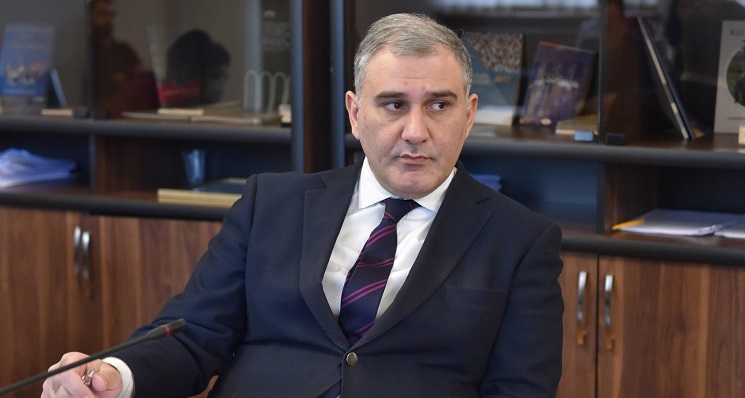Parliament official says constitution “can’t be tailored to political process” after opposition call for direct elections for President

The term of the current President Salome Zourabichvili ends in October, with an electoral college set to elect her successor. Photo: Parliament of Georgia
Mikheil Sarjveladze, the Chair of the Georgian Parliament's Committee on Human Rights, on Tuesday said the call by the opposition political party For Georgia for the President to be elected by citizens instead of the electoral college was “wrong” as the constitution “cannot be tailored to some political process”.
Sarjveladze’s comments followed the call voiced by Beka Liluashvili, a member of the party founded by the former Prime Minister Giorgi Gakharia, who on Monday said the future President of the country should be directly elected.
The term of the current President Salome Zourabichvili ends in October, with an electoral college set to elect her successor.
In his response, Sarjveladze noted the electoral college system was in place “in many European countries”.
“It is determined by the constitution that we want to have the system of government in the country that is in a parliamentary republic”, he noted.
In this system, the model of electing the President that is defined by the current constitution is reasonable. By the way, Giorgi Gakharia, who represented the Georgian Dream party [in the past], had the same position [at the time]. It is not clear why his position has changed”, Sarjveladze said.
“When we are talking about the constitutional order, the constitution cannot be tailored to some political process. I think that this is a wrong initiative and is probably aimed at emotional moods. The current model [for electing the President] has been adopted in many European countries”, he concluded.
For the 2024 elections, the Georgian President will be elected by a 300-member electoral college, the composition of which will be approved by the Central Election Commission.
It will include all members of Parliament, the legislative bodies of the autonomous republics of Abkhazia and Adjara, and nominees of political parties from representative bodies of local governments.
 Tweet
Tweet  Share
Share